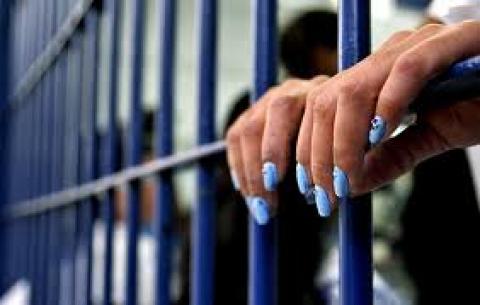
Security is an interesting thing these days. I often wonder, “Do we have security? In what lies our security?” Brazilians spend more today on private security than people who live in Colombia, a country wracked by civil war. Cars have bullet-proof windows; houses have protection bars on the windows; neighborhoods pay someone to watch their streets at night; some people even have their own private security personnel for their homes or their persons.
Public security is a basic right of ours: We should be able to walk in the streets without fear of being robbed. Our children should be able to play in the streets without fear of predators. Yet all of our weapons, all of our defense expenditures, all of our radar systems do not bring us security. All of our money in the bank, all of our education, all of our investments – be they financial or material like our homes – do not bring us security.
This is the time where we seem to be learning this lesson over and over, starting with the bombing of the twin towers in New York, and moving through Hurricane Katrina and the thousands of people who lost their homes in New Orleans on to this recent financial crisis. And that is just in the United States.
In whom can we put our trust? In the economic specialists who did not predict or did not avoid this crisis? In the engineers that built the dam in Louisiana or the government that chose to ignore warnings that the dam was at risk? In our government that chooses to put lives at risk in a war that is not ours? In our neighbor?
Brazil and the United States both have the sad fame of being countries that imprison a large number of its citizens – the U.S. has the largest prison population in the world, and Brazil is in fourth place. Both countries also have some of the highest indices of violent death (in the U.S., death by handgun). We have a long way to go to a sense of security.
I work with imprisoned women in Brazil and visit regularly a few prisons in Sáo Paulo, including one that holds 2,700 women. Daily I hear stories that are much more about justice than crime. Ana Maria is in prison because she was being threatened with eviction from her tiny shack that she shared with her four children. In an act of desperation, she accepted an offer to carry drugs from one place to another for $50. Is she a criminal? No. Does that make her action correct? Not by the law. However, if we had economic justice in our world, would Ana Maria have carried drugs? Probably not.
The state did not provide for economic justice, or for the safety of Ana Maria and her children, and in an act of desperation, Ana Maria also contributed to the violence of the drug trade. We can choose to continue this downward spiral into insecurity and violence, or we can choose to be different. As Christians, we are called to be different. As Christians, we are called to step away from the status quo – to go out in search of the “unclean spirits” of our time and expel them.
Jesus sent out his apostles to expel unclean spirits. We can have a whole discussion about what might be some of the “unclean spirits” of today. However, that is not the crux of his message, I believe. Jesus did not tell his apostles to walk only during the day (and we know Bible stories about robbers, murderers, and foreigners being attacked because they are not welcomed in strange lands, so we cannot suggest that there was no risk in their time); Jesus did not tell his apostles to go armed for protection; to take their bank cards in case they needed to stay at an inn, or needed money. He told them “to take nothing for the journey except a staff; no bread, no bag, no money in their belts.” Trust was his message. If you believe that what you are doing is right and you are following me and my call, then trust.
However, we must remember, that Jesus also did not say, “Stay at home, live right, take care of your family and trust in me.” He calls us to go out – in communities, in teams (they were sent out in twos) and preach repentance, and work for peace and justice. The Christian call is to build the reign of God right here on earth. All of us. Period. Look at Amos in the first reading. He says he was a shepherd – he wasn’t looking to be a prophet – not at all! God called him and he went.
Are we all called to leave everything behind but the clothes on our backs, with not even an extra pair of shoes? (What if it rains?) Probably not. But what I hear Jesus saying is get out of your comfort zone and be a neighbor. Get involved with your neighbors, and your brothers and sisters. I believe that each of us can do that – we need to listen in prayer and to our community members and loved ones to know what God is calling us to do. I imagine that Amos’ first response to being called from his sheep to go prophecy was “Huh??”
Open your heart, get out of your comfort zone and listen for God’s call!
This homily reflection was originally published in 2009.
